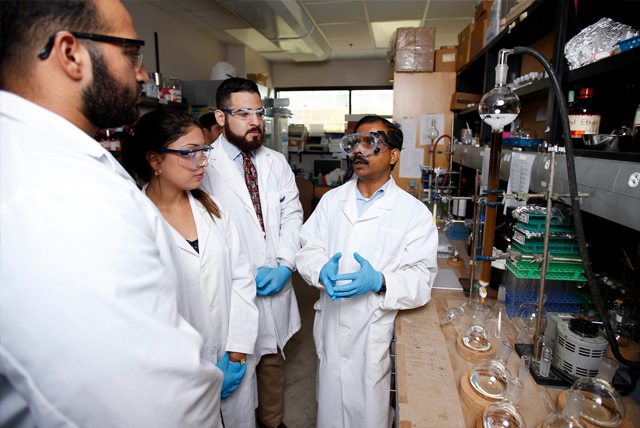Document Type
Article
Publication Date
12-2014
Abstract
The present study discusses the design, development and characterization of electrospun Tecoflex® EG 80A class of polyurethane nanofibers and the incorporation of multiwalled carbon nanotubes (MWCNTs) to these materials. Scanning electron microscopy results confirmed the presence of polymer nanofibers, which showed a decrease in fiber diameter at 0.5% wt. and 1% wt. MWCNTs loadings, while transmission electron microscopy showed evidence of the MWCNTs embedded within the polymer matrix. The fourier transform infrared spectroscopy and Raman spectroscopy were used to elucidate the polymer-MWCNTs intermolecular interactions, indicating that the C-N and N-H bonds in polyurethanes are responsible for the interactions with MWCNTs. Furthermore, tensile testing indicated an increase in the Young’s modulus of the nanofibers as the MWCNTs concentration was increased. Finally, NIH 3T3 fibroblasts were seeded on the obtained nanofibers, demonstrating cell biocompatibility and proliferation. Therefore, the results indicate the successful formation of polyurethane nanofibers with enhanced mechanical properties, and demonstrate their biocompatibility, suggesting their potential application in biomedical areas
Recommended Citation
Macossay, J., Sheikh, F. A., Cantu, T., Eubanks, T. M., Salinas, M. E., Farhangi, C. S., Ahmad, H., Hassan, M. S., Khil, M., Maffi, S. K., Kim, H., & Bowlin, G. l. (2014). Imaging, spectroscopic, mechanical and biocompatibility studies of electrospun Tecoflex® EG 80A nanofibers and composites thereof containing multiwalled carbon nanotubes. Applied Surface Science, 321, 205–213. https://doi.org/10.1016/j.apsusc.2014.09.198
First Page
205
Last Page
213
Publication Title
Applied Surfaces Science
DOI
10.1016/j.apsusc.2014.09.198



Comments
© 2014 Elsevier B.V. Original published version available at https://www.doi.org/10.1016/j.apsusc.2014.09.198